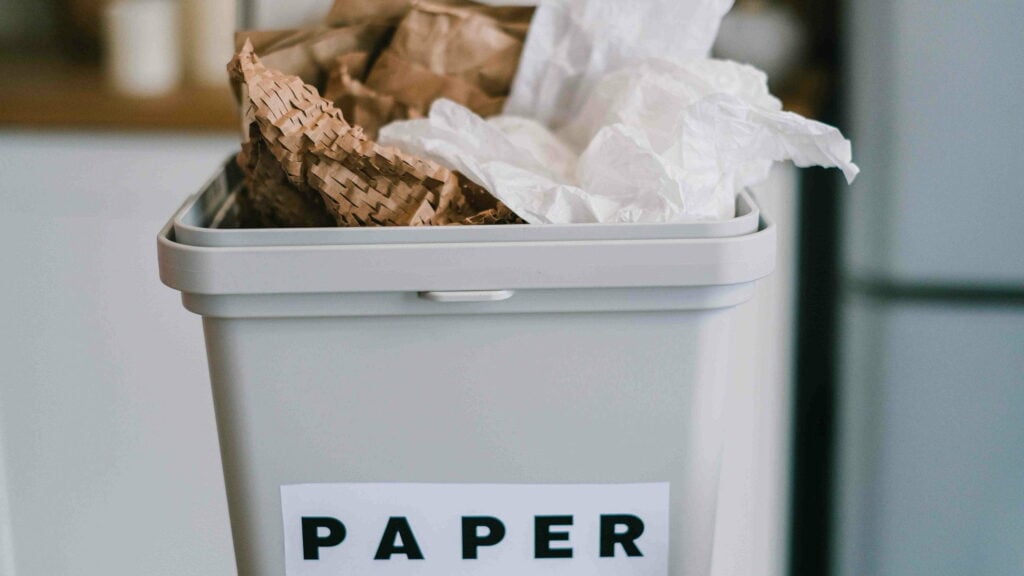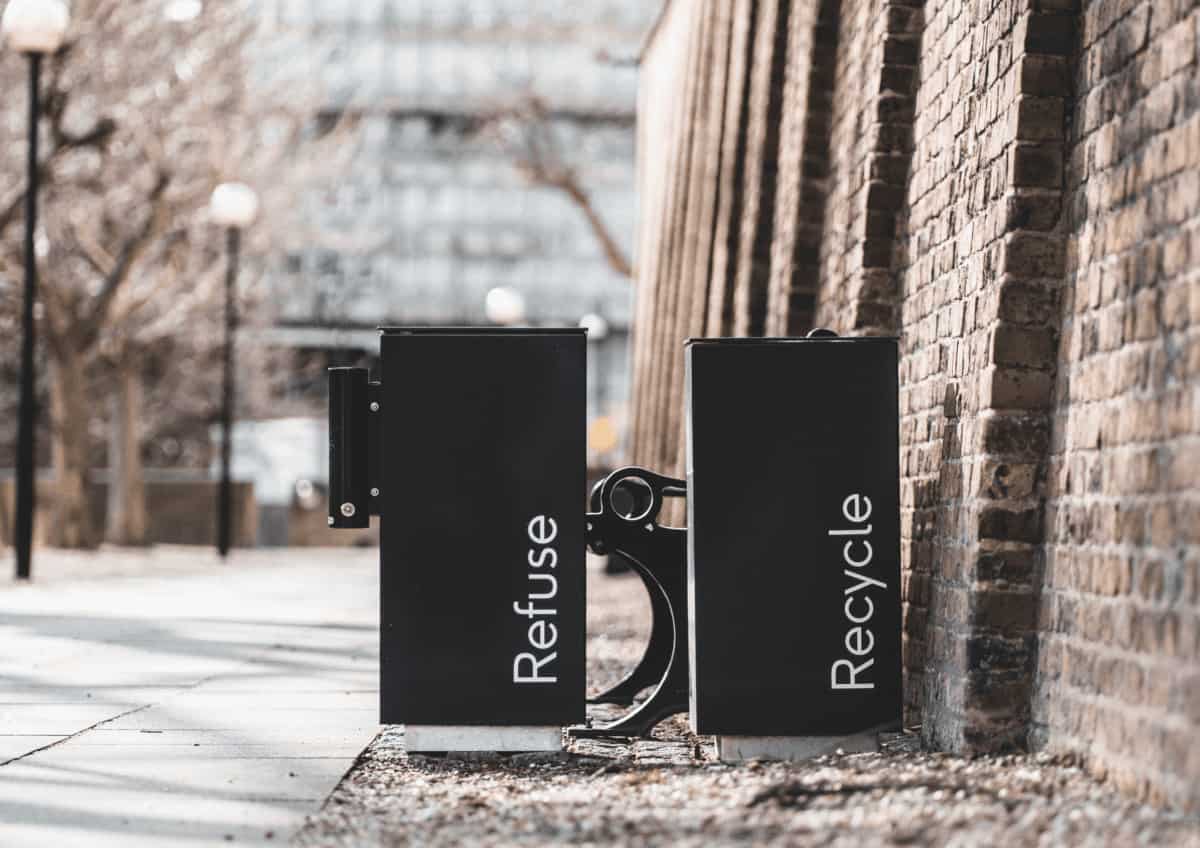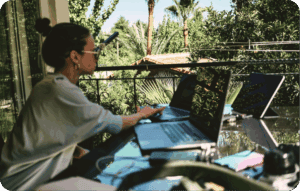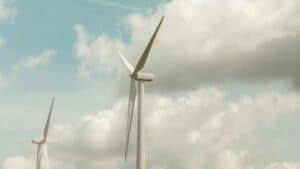The Netherlands holds itself to a high standard when it comes to waste management. Value is seen in natural raw materials, so it’s imperative that residents separate and dispose of their trash appropriately. Within the municipality of Rotterdam, there are various containers for regular household waste and recyclable materials.
In this post, we will explain all the different types of waste that you can recycle and how to do waste disposal properly. This will leave little residual waste and is therefore better for the environment!
Recycling & Waste Management in the Netherlands
Everything you throw away has value for recycling and by disposing of specific materials appropriately, we can decrease landfill demand.
Dutch waste management follows an inverted pyramid approach, where the most preferred strategy (at the base of the pyramid) is to avoid waste production as much as possible. Following the Dutch waste management strategy, we captured the topics below – rated from the highest and most preferred waste options to the least preferred showcased with a lower percentage:
As you can tell, disposal in a landfill is only used as a last resort. According to the official government website for waste management in the Netherlands, 77% of Dutch waste is currently recycled. The residual waste mainly takes part in energy recovery.
Environmentalism in the Netherlands
When it comes to the future of the Dutch waste management, the country aims to achieve a circular economy. In the mid-80s, the Netherlands struggled without an adequate waste management system and had issues with landfills. Since then, the government developed a new waste management plan and the amount of landfilled waste decreased from 35% in 1985 to 2.1% in 2016.
Simultaneously, the percentage of recovery (including waste-to-energy) has risen from 50% to 93% within the same time and more and more waste is separately collected. Now, that’s what we call progress!
To achieve this, the Dutch government’s environmental body introduced and enforced stringent waste treatment standards, closely cooperated with local governments, and ensured that producers are responsible for the management of products they put on the market. You won’t have to worry about poor waste management when living here.
Three Types of Waste Disposal in Rotterdam
Regular Waste
You can spot these bins scattered all over Rotterdam. Some of them are for recycling and some are for household waste. Struggle to find these bins? You can use the link below to find the ones nearest to you!
Recyclable Waste
Paper, glass, textile, and organic waste. Bins for these are less frequently found but are always marked accordingly.
Bulk Waste Disposal
If you struggle with getting rid of bulk waste, don’t worry, there is a solution! In Rotterdam, you can find many environmental parks ( milieuparken in Dutch), where you can recycle your bulk waste. You can find those locations in the link below.
Where to Get Rid of Household Waste?
Your household waste is composed of several materials that when simply put together cannot be recycled and will be landfilled. For a healthy living environment, no separation of waste is unacceptable. To contribute to effective waste management, follow our tips to know where your waste belongs!
Waste Collection Days
If there is one thing you can have confidence in, is that Dutch municipalities regularly empty waste containers. Most municipalities have shared neighbourhood containers for residual waste, glass, paper, and textiles. Currently, organic waste containers are becoming more and more present in Rotterdam. But some residents have their own household containers.
To know when the household containers get emptied in your municipality, you can download the free Afvalwijzer app from either the Google Play or Apple store (just search ‘Afvalwijzer’). You can also look up the waste collection days on the Mijn Afvalwijzer website with your postcode and house number. Unfortunately, it doesn’t contain the days when the neighbourhood containers are emptied.
According to the Rotterdam municipality website, residual waste is collected weekly, the organic waste is collected every other week, and paper/glass is collected every 4 weeks.
Public Holidays
On public holidays, your municipality will not be on its regular waste pick-up schedule for residents with a home container. However, neighbourhood containers will still be emptied on public holidays except on Christmas Day.
Where are the waste containers?
If you don’t have home rubbish containers, then you can probably dispose of your waste in the neighbourhood containers. Where to find them? The municipality of Rotterdam has a map where you can find the locations of the containers for all types of waste, including: glass, residual waste, organic waste, paper, and textile.
Glass, Paper, and Textile Waste
To separate your waste, take particular note on the three main recyclable substances: paper, glass, and textiles.
Paper garbage includes small cardboard boxes, paper packaging, loose papers, etc. Make sure to flatten them before discarding them in the blue-accented containers. It’s important to note this does not include Tetrapak – which is boxy packaging often used for milk or juices. Paper recycling also doesn’t accept paper bags with plastic parts, postcards, or baking paper. These are all a combination of paper and plastics, and therefore is not fully recyclable with paper. Please discard them in your regular household waste.
Glass garbage includes every type of coloured glass that exists from medicine bottles to sauce jars. It’s the easiest material to recycle, so make sure you always separate it! However, it doesn’t include mirrors, drinking glasses, porcelain, or ceramic. The glass containers have yellow accents.
Textiles can be everything from bed sheets to old clothing. There are several waste containers scattered around Rotterdam specifically for textile waste and you can recognise them by their large, boxy structure and purple stickers. Make sure you place your textiles in a plastic bag before throwing them away in the containers. However, if your old clothing remains in good condition, consider donating to your favourite charity or a thrift store like Het Goed!
Frying Fat / Cooking Oil
Many people are not sure what to do with non-solid waste like used cooking oil. What we know for sure is that it should never be poured into the sink or flushed in the toilet because this can cause blockages in the drains and sewer.
Fortunately, in the Netherlands, there are fat collection points where you can deliver your used fat. Make sure you’ve poured them into a spare plastic container before delivery. Used fats and oils are used to make biofuel.
However, it’s also possible to reuse it! You can return used fat and oil to the bottle it came from.
Plastic Bottles and Cans (Statiegeld)
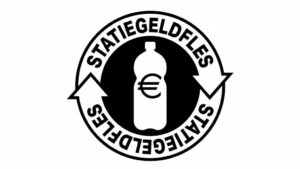
It’s of no surprise that plastic bottles need to be put in recycling. When you buy a drink housed in a plastic bottle or a metallic can from a supermarket, the price comes with an extra deposit – somewhere from 15 to 75 cents, depending on the size of the bottle or can. This is known as ‘statiegeld‘ in Dutch.
You get this deposit back in the form of a discount barcode which you scan at the check-out counter to lower the price of your overall grocery total. In most chain grocery stores, there is always a small machine where you can return plastic bottles and cans to receive this statiegeld.
If you ever have a bottle with this sign, remember to bring them back to the store! You can save them somewhere, then recycle them at the store, and get some cents back for your next shopping trip. However, if your bottles are from the grocery store brand, you can only return that bottle in that same grocery store. So don’t go bringing your Aldi-branded bottles to Albert Heijn!
Bulky Waste
Household waste that doesn’t fit in your residual waste containers – e.g. broken electronic devices, raw materials, bulky cardboard (as long as there are no hazardous materials) – should be taken to a recycling centre (environmental park or ‘milieupark’) in your area. These are free of charge and usually located in the outskirts of big cities. Look at the Rotterdam municipality map to see where these are located.
Are you unable to drop off your bulky waste at these parks yourself? You can make an appointment with the Rotterdam municipality to pick it up for you via an online form (below) or the phone number: 14010.
Important to note: many Dutch municipalities detest when bulky waste is left outside on the pavement without an appointment, Rotterdam included. If your neighbourhood container is full, do not leave your trash bags sitting around the container and go the nearest neighbourhood container. You may be fined for doing this.
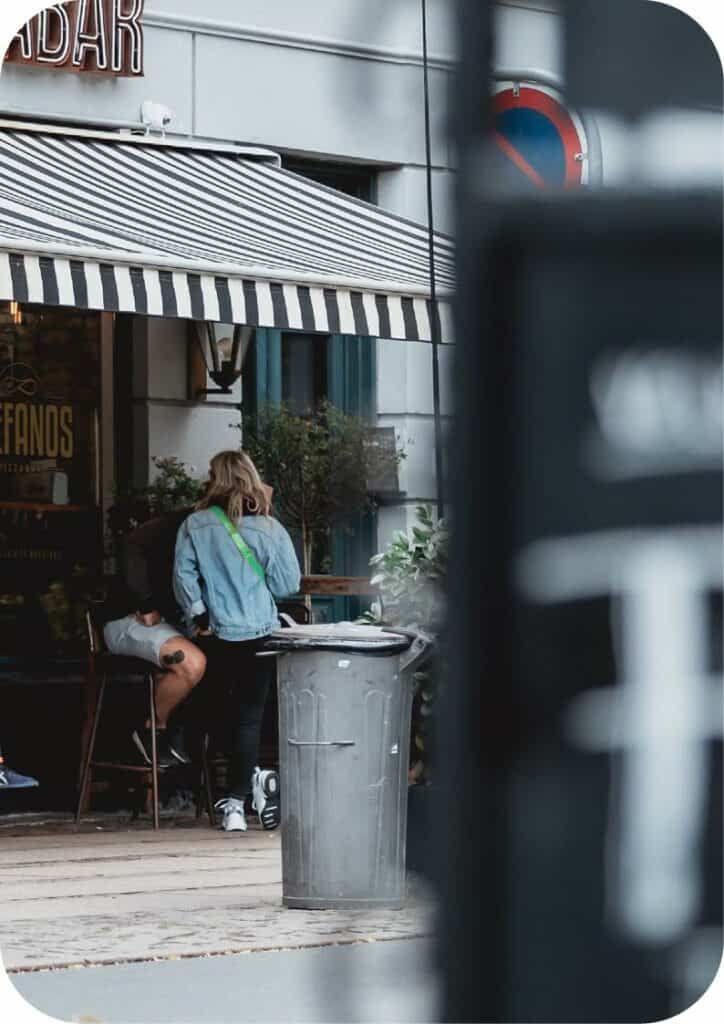
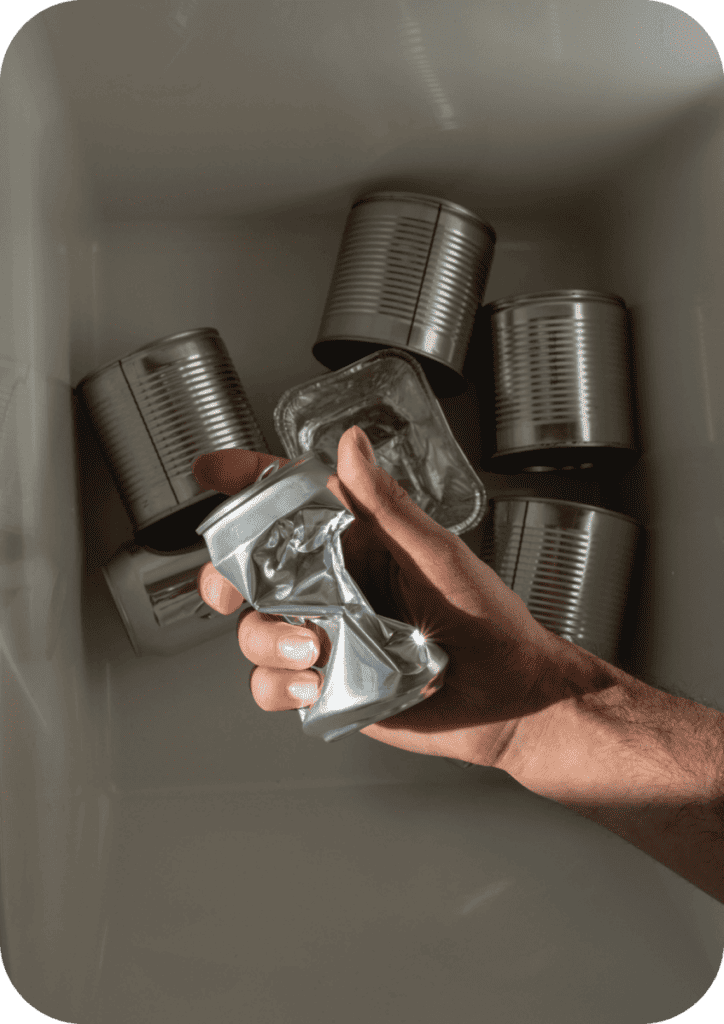
Commercial Waste
Commercial waste is produced by companies and businesses. In the Netherlands, you must separate your industrial waste and have it collected. To get it collected, you need a permit from your municipality. You can check the waste guide for companies to know which waste has to be separated and how to apply for this permit.
Chemical Waste
Small chemical waste includes things like energy-saving lamps, paint, batteries, and medicines. Naturally, because hazardous waste contains chemicals, you cannot dispose of them in your regular household waste or down the drain. Dead Batteries and lightbulbs can typically be disposed in specialty bins found in electronic stores or some supermarkets (MediaMarkt and IKEA have these bins, for example).
However, the environmental parks mentioned in the ‘Bulky Waste’ section can also be where to dispose of all types of chemical waste. Please note that these parks are closed on public holidays.
Electronic Waste
Are your old electronic devices still somewhat functional? Feel free to donate them to your local thrift store for a vintage collector to find. Otherwise, if the quality is completely non-usable, you can usually hand them in at electronic device stores (MediaMarkt, again) or at the environmental parks. The parks can take large electrical appliances like fridges, washing machines, etc.
You can also check out wecycle.nl for e-waste collection points and delivery services for old appliances and lamps. They will recover them for new raw materials.
Effective Waste Management
Phew! That’s a lot of information, right? But the more standards there are for waste management, the better it is for the environment. The Dutch government wants 55% of household and industrial waste to be recycled by 2025, and with these measures, waste can either be given a new life or recovered for raw materials to achieve this goal!
